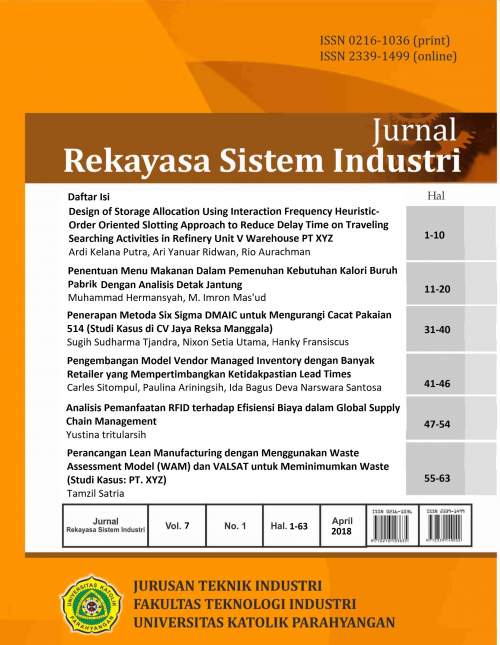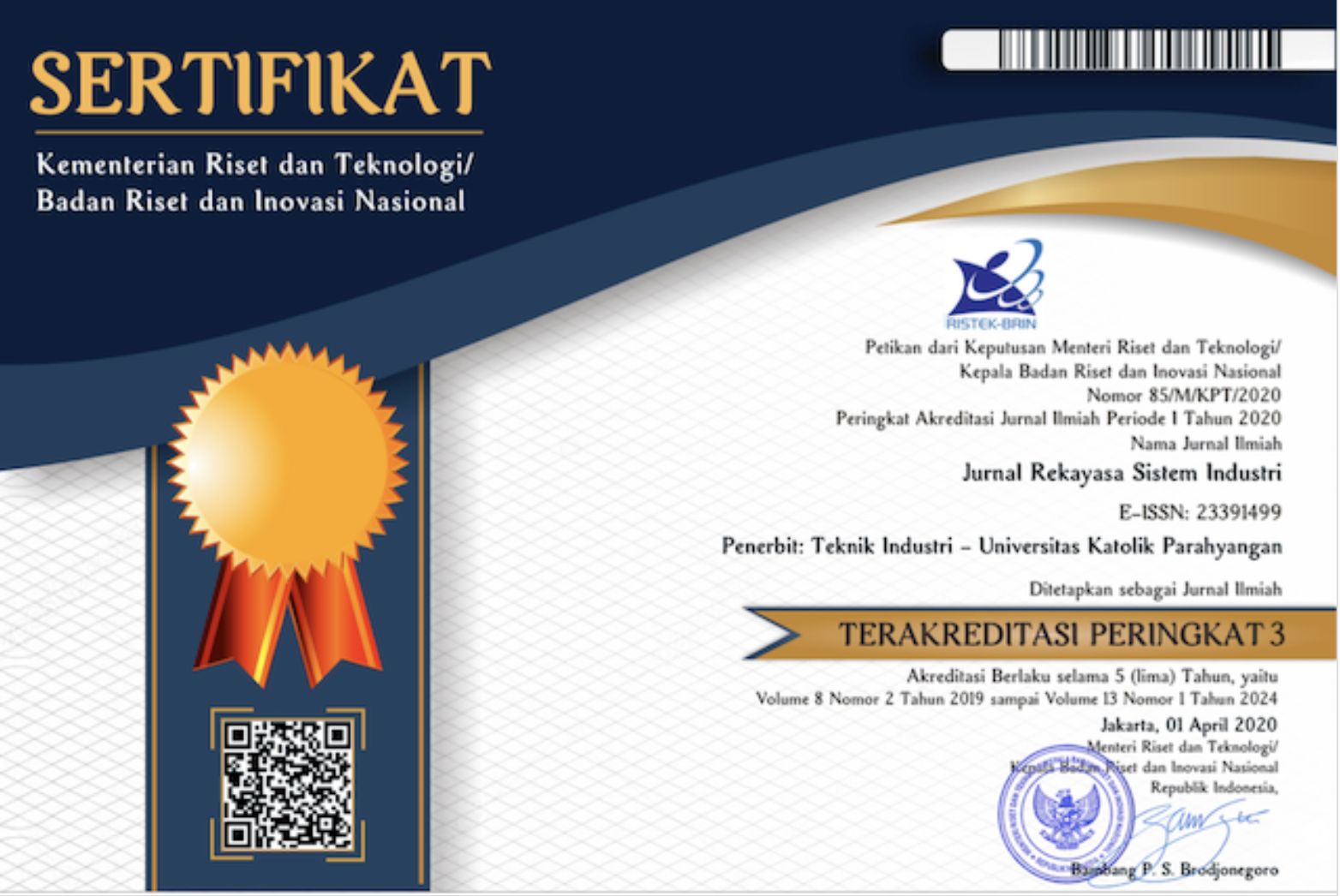Analisis Pemanfaatan RFID terhadap Efisiensi Biaya dalam Global Supply Chain Management
DOI:
https://doi.org/10.26593/jrsi.v7i1.2798.47-54Abstrak
Supply Chain Management (SCM) has been assumed to play an important role in the company's performance and has attracted academician’s attention to research seriously in these recent years. A number of literatures reveal the research of supply chain management developmenth that has implemented RFID technology. Generally, the method is implemented by combining and informing the journal about cost-benefit analysis model in a company that applies RFID tag technology integratedly from production line, delivery up to management of retailer part. Currently, all links from the entire supply chain need to integrate those different parts and have better controls to get better returns. This integration must offer the ability for the company to have a thorough and transparent insight into its supply chain activities. Intelligent supply chains that are primarily supported by RFID technology can meet these integration needs. By using RFID, a company can benefit from several advantages. One of them is cost reduction and time efficiency. This paper attempts to recommend a model to estimate the benefits of implementing RFID in companies that have an integrated supply chain process. The proposed model is used to find out the value of depreciation and RFID price tag that can provide maximum benefit from RFID implementation. Examples of case studies provide a better understanding of calculation model
Referensi
Decker, C., Berchtold, M., Weiss F. Chaves, L., Beigl, M., Roehr, D., Riedel, T., & Herzig, D. (2008). Cost-Benefit Model for Smart Items in the Supply Chain. The Internet of Things, 155-172. University of Karlsruhe, Jerman.
Fan, T. J., Chang, X. Y., Gu, C. H., Yi, J. J., & Deng, S. (2014). Benefits of RFID technology for reducing inventory shrinkage. International Journal of Production Economics, 147, 659-665. East China University of Science and Technology, Shanghai, China.
Juels, A. (2005). “RFID Security and Privacy: 28 September.
Hunt, Daniel V., Puglia, A. & Puglia, M. (2007). RFID A guide to Radio Frequency Identification. Hoboken New Jersey: John Wiley & Sons.
Lawal, N.T.A, Odeniyi, O.A, Gazaly-Agboola, A.B., (2016). Performance Analysis Radio Frequency Identification Technology in Management of Fashion and Food Retail Supply. International Journal of Emerging Technology and Innovative Engineering, Vol 1, Issue 7.
Rekik, Evren, S., Dallery, Y. (2009). Inventory inaccuracy in retail stores due to theft: An analysis of the benefits of RFID. International Journal of Production Economics, 118, 2009: 189–198.
Sarac, A., Absi, N., Dauzere-Peres. (2009). A Literature Review on The Impact of RFID Technologies of the Supply Chain Management. Working Paper ENSM-SE CMP WP.
Sarac, A., Absi, N., Dauzere-Peres. (2015). A Impacts of RFID technologies on supply chains: a simulation study of a three-level supply chain subject to shrinkage and delivery errors. European J. Industrial Engineering, Vol. 9, No. 1.
Tarigan, Z, J, H. (2004). Integrasi Teknologi RFID dengan Teknologi ERP Untuk Otomatisasi Data. Jurnal Teknik Industri. 6, No.2. 2004: 134-141.
Tajima, M. (2007). Strategic value of RFID in supply chain management. Journal of Purchasing & Supply Management, 13: 261–273.
Tao, F., Fan, T., Lai, KK. and Li, L.(2017). Impact of RFID technology on inventory control policy. Journal of the Operational Research Society, doi:10.1057/s41274-016-0030-5.
Veronneau S, Roy J. (2009). RFID benefits, costs, and possibilities: the economical analysis of RFID deployment in a cruise corporation global service supply chain. Int J Prod Econ 122(2):692–702.
Wu X, Yue D, Bai J, A. (2009). Real Options approach to strategic RFID investment decision. In: 2009 IEEE International conference on RFID, pp 314-321. IEEE.
Zaheeruddin Asif. (2005). Integrating the Supply Chain with RFID: A Technical and Business Analysis. Volume 15 Article 24. Communications of the Association for Information Systems is produced by The Berkeley Electronic Press (bepress).













